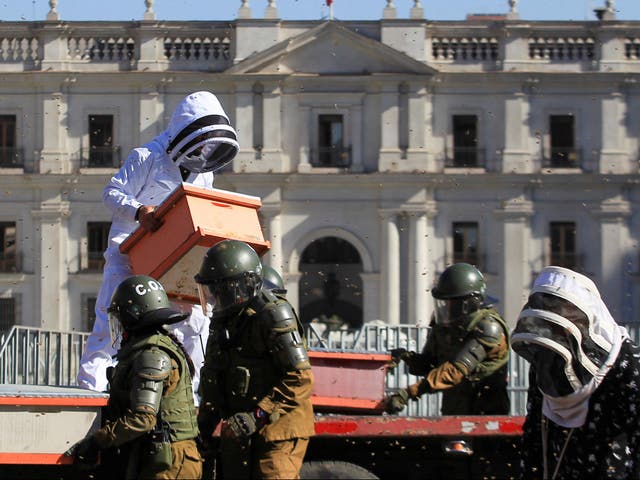The struggle for proper government subsidisation continues in Chile as beekeepers face the consequences of the drought that has been ongoing for over a decade. As global temperatures rising have resulted in more extreme weather, Chile has been in a state of drought since 2010. The lack of water has led to the death of wildflowers and crops which are vital for pollination. Chilean beekeepers have already experienced a decline in the bee population and are concerned that they may have to choose between reducing the quality of their honey or moving their hives to up to 1000km away on the South coast.
Climate change is not the only reason behind the decline in the bee population, however. Since November 2021, beekeepers have reported losing up to 300 hives and although the drought is ongoing, it is not the only factor affecting these losses. The lack of crop diversity, poor water use, and the increasing use of pesticides by Chilean farmers also contributes to the reduced bee population. Imports of pesticides in Chile have grown by 460% over the last 20 years as a result of farmers struggling to produce food, meaning that bees and other pollinators are more at risk. The lack of crop diversity and wildflowers is also a contributing factor as pollinators thrive from having a variety of plants to feed off. Nonetheless, as climate change continues to affect Chile, farmers will increasingly have to rely on pesticides to maintain their yields and will struggle to maintain a good level of biodiversity.
In January 2022, to protest against the lack of subsidisation of beekeepers in the country, beekeepers staged a protest outside the presidential palace in Santiago. They set around 60 beehives containing 10,000 bees outside the palace and called for better economic conditions and government subsides for farmers affected by the droughts. During the protests, police officers attempted to arrest the beekeepers and move the hives and this resulted in seven officers being stung and hospitalised.
As global temperatures continue to increase, extreme weather events will become more common. It is the responsibility for governments and industry leaders to provide a just economic transition towards a greener economy to ensure that we can work towards a more sustainable future without compromising the economic needs of working people.

